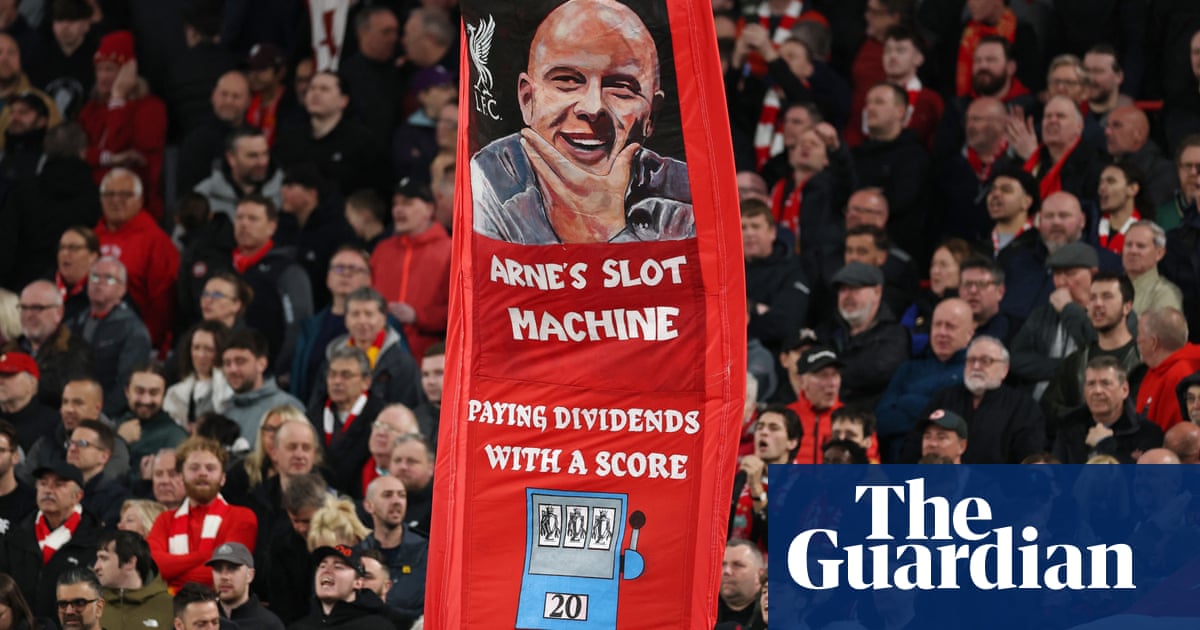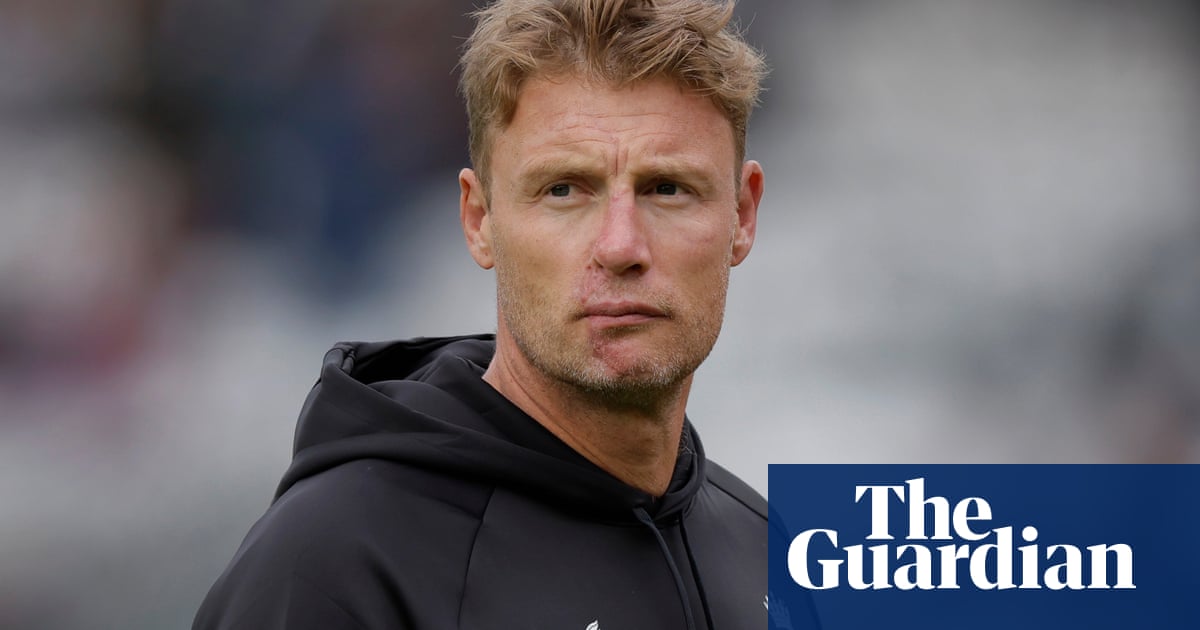“Arne Slot is going to win the Premier League in his first season after taking over from Jürgen Klopp,” writes Hannah Mitchell. “What examples are there of managers who have had instant success after succeeding a legendary manager?”
It’s not unusual for a new Liverpool manager to win the league in their first season. Matt McQueen (1922-23), Joe Fagan (1983-84) and Kenny Dalglish (1985-86) all did so, – but they were established figures at the club, whether in the boardroom, the boot room or the dressing-room. Arne Slot was new to English football, never mind Liverpool, and was succeeding one of the most charismatic figures in the club’s history. In that context, winning the Premier League with (potentially) four or five games remaining is a remarkable achievement.
Slot is not the only newcomer who looks set to win an English top-flight title. In the Women’s Super League, Chelsea have adjusted seamlessly to life under Sonia Bompastor, who succeeded Emma Hayes in the summer, and may well do the domestic treble. The 4-1 defeat in Barcelona makes it unlikely Chelsea will win the lot this season, but that has happened in the past.
“Managers don’t come much more legendary than Rinus Michels, who guided Ajax to four national titles, three domestic cups, and a European Cup triumph, all the while revolutionising the game with his team’s Total Football,” writes Kári Tulinius. “Ștefan Kovács therefore had big boots to fill, and did so by winning the Eredivisie, KNVB Cup and European Cup in his inaugural season, adding the European Supercup and Intercontinental Cup to his tally the following winter, and then defending the European Cup and national titles. Follow-up acts don’t come much more impressive than that.”
Ajax won five and drew four of their first nine games under Kovacs. Then they really hit form: for the rest of the 1971-72 season their record in all competitions was P39 W37 D1 L1.
Frank Rijkaard might not qualify as a legendary Barcelona manager – but he did win the Champions League and two La Liga titles so Pep Guardiola had plenty to live up to when he took over in 2008. In his first season, Barcelona became the first Spanish side to do the Treble, all the while playing football from the distant future.
Another newcomer almost achieved the same feat 51 years earlier. “After the legendary José Villalonga left Real Madrid in 1957, Luis Carniglia was appointed,” writes Ben Janeson. “He took Real Madrid the closest they’ve ever come to a European treble, winning the European Cup and La Liga and being runners-up in the Copa del Generalísimo.”
Aston Villa’s European Cup triumph of 1982 came less than four months after Tony Barton had replaced Ron Saunders, who left the club in February after a disagreement with the board. Joe Shaw won the league title with Arsenal after taking over in January 1934 when the great Herbert Chapman died suddenly. And when Fabio Capello replaced Arrigo Sacchi in 1991, Milan won Serie A without losing a game.
Putting parenting first
“It’s fairly common nowadays for a footballer to miss a match because their partner is in labour, but I’m guessing this is a newish development in the game. Who was the first professional player to miss a match in order to be present at the birth of their child? And how long did it take for this to become common?” asks Magda.
The first person who comes to mind is QPR’s Martin Allen in March 1989. He flew home before an away game at Newcastle after learning his wife had gone into labour, and made it in time to see the birth of his son, George. Allen was fined two weeks’ wages by QPR player-manager Trevor Francis. It become a huge story and was even discussed in parliament. In time Francis regretted his actions, but his relationship with Allen never recovered. Allen moved to West Ham in the summer.
Would a title playoff in Italy be a first?
“The Serie A title could be decided by a playoff, with Inter and Napoli level on points with five games to go. Has this ever happened before?” wonders Tom Mortimer.
There has only been one playoff to decide the Scudetto. In 1963-64, Bologna and the defending champions, Inter, finished with 54 points (two for a win in those days) from 34 games. Bologna had a superior goal difference but that wasn’t used as a tiebreaker. Instead the two teams met in a one-off game in Rome on 7 June, a week after the end of the regular season.
Inter, who won their first European Cup at the end of May, were in blistering form and had won at Bologna at the end of March. At that stage it looked like they would win the title with ease – Bologna had been deducted three points when five of their players failed a drug test after a game against Torino. Bologna appealed successfully on the grounds the urine samples were not handled properly and got the points back, which meant they finished level with Inter.
Then, in the week of the title playoff, Bologna’s president, Renato Dall’Arra, died suddenly during a federation meeting. But Bologna won their seventh title thanks to two goals in the last 15 minutes: the great Giacinto Facchetti deflected Romano Fogli’s free-kick into his own net before Harald Nielsen, the league’s top scorer, finished expertly to make it 2-0.
Corrections corner
In last week’s Knowledge we looked at the first player to have a red card rescinded. “The red card system was introduced into the English game in 1976,” writes Terry Woods, “so your article on the first English player to have one rescinded in 1969 is not valid.”
We should have said that Northampton Town’s Frank Large was the first player we could find who had his suspension quashed after being sent off in an association football contest. But we didn’t, and now we’ve been shown a red card.
Knowledge archive
“Giorgos Giakoumakis has finished as the Eredivisie’s top scorer (by some margin) yet his team, VVV-Venlo, have been relegated,” wrote Willem Cleven in 2021. “Has any Golden Boot winner suffered such an ignominious fate before?”
They certainly had. “Southampton’s Mick Channon managed that feat,” wrote Andy Grace. “The famous windmill celebration was seen 21 times in 1973-74 and he topped the Division One scoring charts, despite the club getting relegated that same season.”
Dirk Maas pointed out that just a couple of years later, in the 1975-76 La Liga season, Enrique Castro González (better known as ‘Quini’) suffered the same fate at Sporting Gijón. He stuck around to fire them straight back up to La Liga the next season, though, when they even qualified for the Uefa Cup. Dirk also found that Thomas Dalgaard went down with Viborg FF in the 2013-14 Danish Super Liga while scoring 18 goals in 33 games.
It’s happened in Italy, too. “Igor Protti was the only Serie A player to have suffered this fate,” offered Jörg Michner. “In 1995-96 he scored 24 goals and became capocannoniere alongside Lazio legend Giuseppe Signori, but his Bari side got relegated anyway.”
Can you help?
“National League South side Dorking are currently in sixth place with one match to play, yet can still win the title providing other results go their way. What is the lowest position any team has come from on the last day to win a title?” asks Mark Mills.
“Dorking beat beat Hampton and Richmond Borough 4-0 on Friday, with their captain Charlie Carter completing his hat-trick in the seventh minute of their game. Is that the fastest hat-trick from the start of the game?”
“Cardiff sacked Omer Riza with only three league games remaining,” notes James Robinson. “Has a manager ever been sacked so close to the end of the season?” Norwich may have just helped to answer that, but perhaps someone else can beat it?
“Which player has the most Premier League appearances without ever having played a competitive match outside England?” wonders Will Fry. “Including European club competitions, senior and under-21 internationals.”









